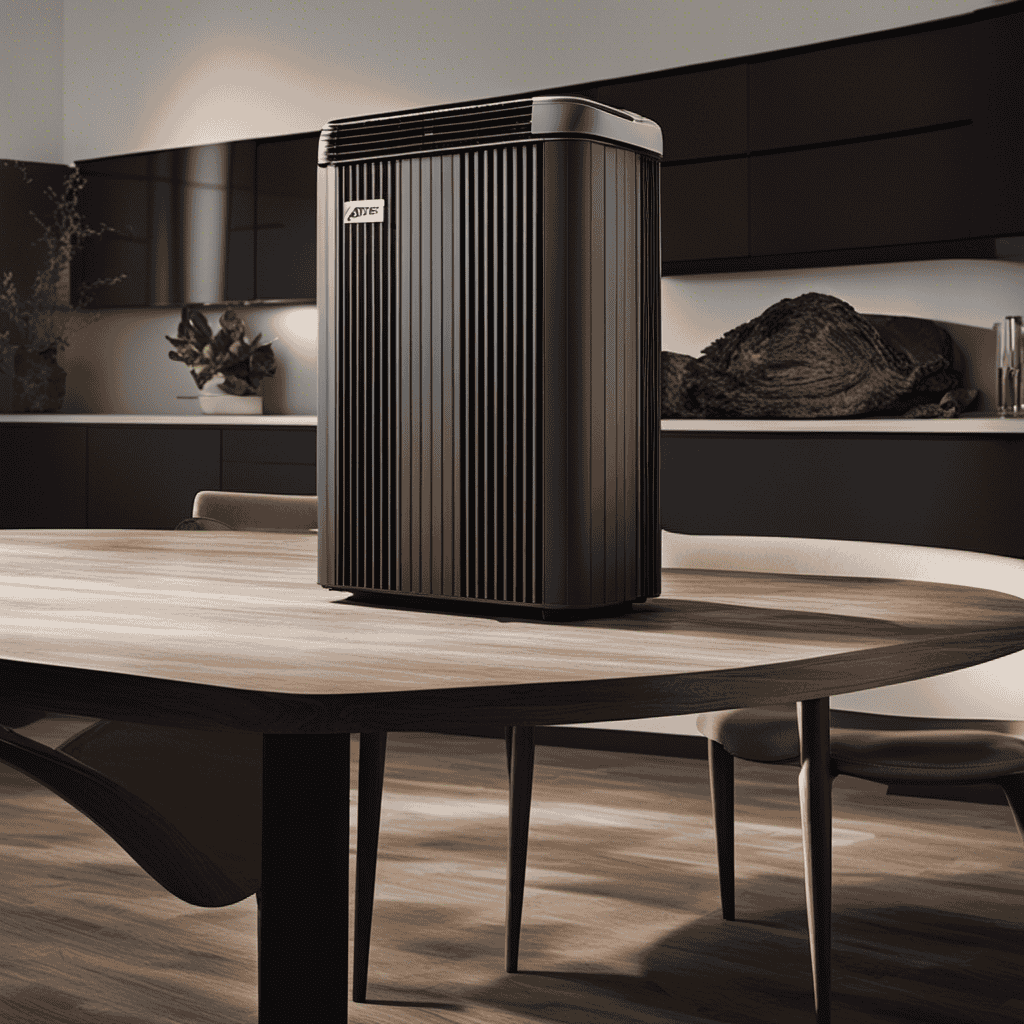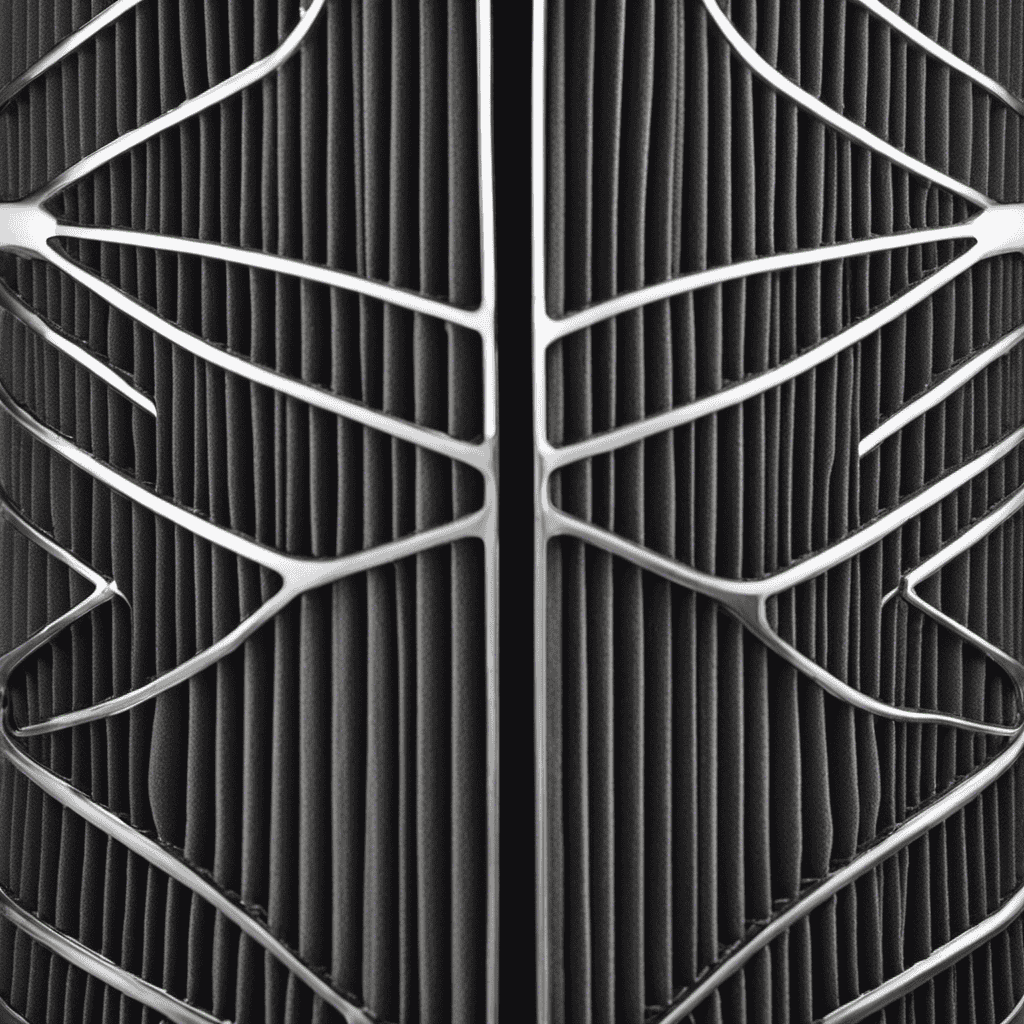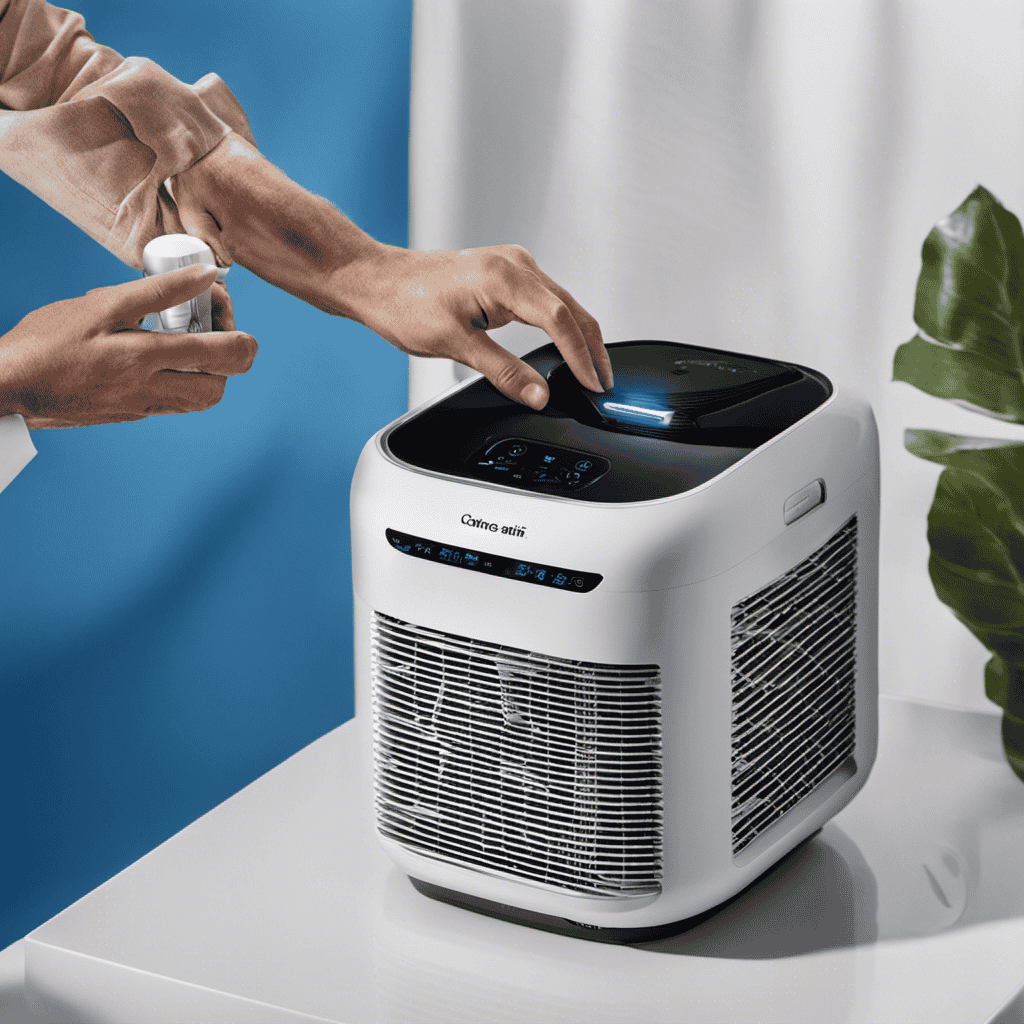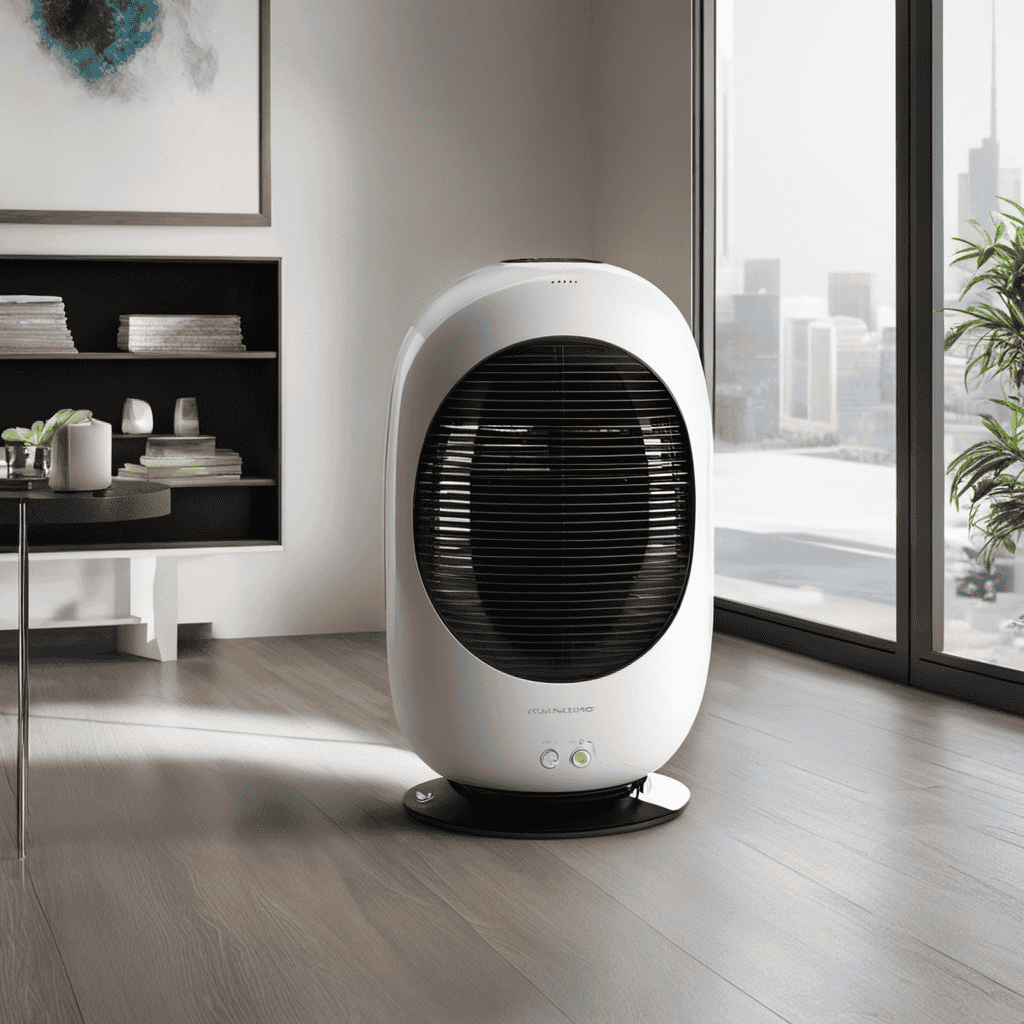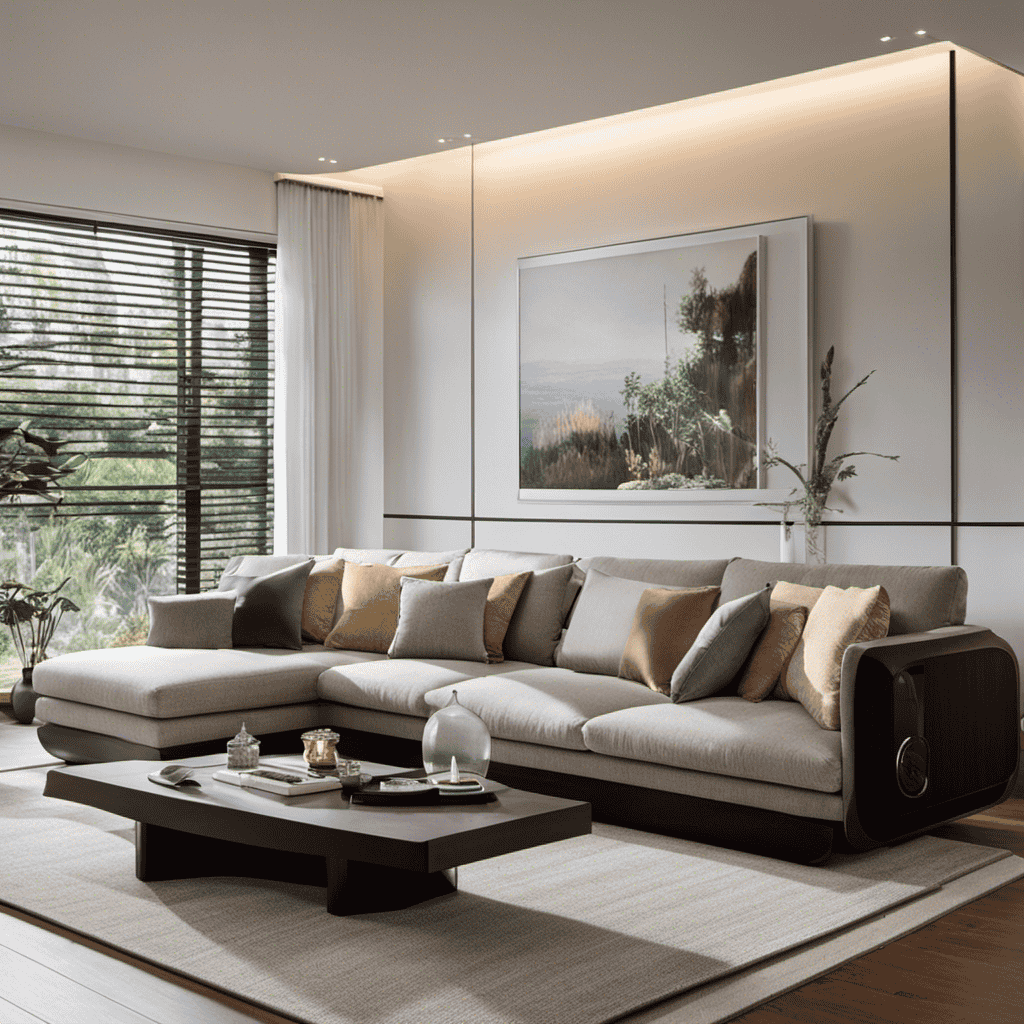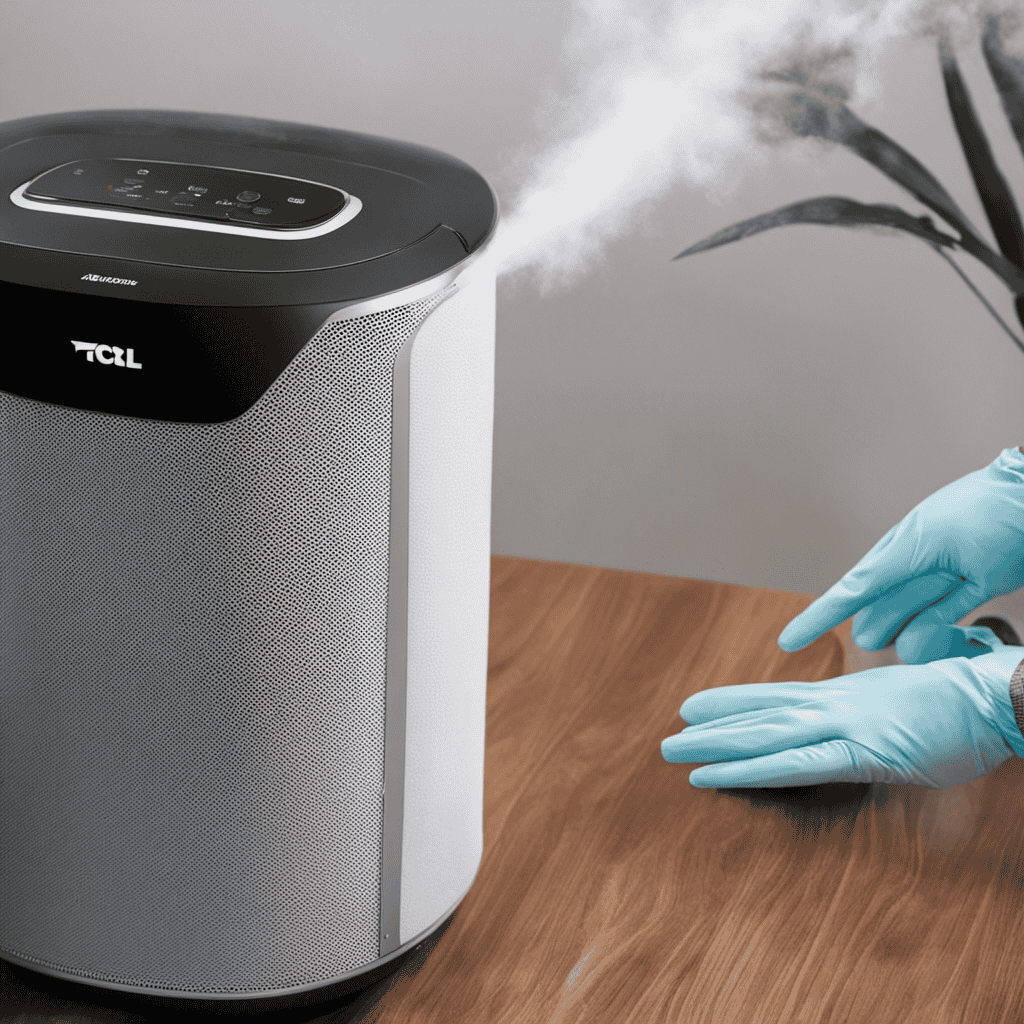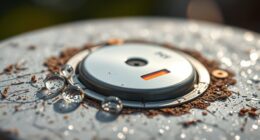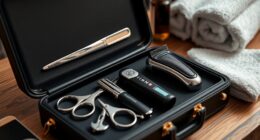As a frequent user of the Aer Air Purifier, I understand how crucial it is to maintain the filter in peak condition. The filter is essential for providing clean, fresh air within our living spaces.
But how often should we replace it? In this article, we will explore the factors that affect the lifespan of the filter, the recommended replacement schedule, and signs that indicate a clogged filter.
By following proper maintenance techniques, we can extend the filter’s lifespan and reap the benefits of regular replacement.
Key Takeaways
- Air quality and usage frequency are key factors in determining when to replace the filter.
- Regularly replacing filters ensures clean air, reduces the risk of respiratory problems, and improves overall health.
- Proper maintenance, such as cleaning or replacing pre-filters and gently vacuuming the main filter, extends the lifespan of the filter.
- Following the recommended filter replacement schedule saves money, maintains air quality, and prevents costly repairs or replacements.
Factors Affecting Filter Lifespan
Factors like air quality and usage frequency can affect how often you need to replace the air purifier filter. The lifespan of an air purifier filter is determined by several factors that impact its efficiency and effectiveness.
One of the most significant determinants is the air quality in your environment. If you live in an area with high levels of pollution or allergens, the filter will likely become clogged and saturated more quickly, reducing its lifespan.
Additionally, the frequency of use plays a role in how often the filter needs replacement. If you run the air purifier constantly, the filter will experience more wear and tear, shortening its longevity.
Therefore, it is crucial to monitor the air quality and usage frequency to determine when to replace the filter. With these factors in mind, let’s now discuss the recommended replacement schedule for air purifier filters.
Recommended Replacement Schedule
To ensure optimal performance, you should follow the recommended schedule for replacing your air purifier’s filter. Regularly replacing the filter is crucial as it helps maintain the efficiency of your air purifier and ensures that it continues to remove pollutants effectively.
Here are some key reasons why you should stick to the recommended replacement schedule:
-
Filter Replacement Cost: While the cost of filter replacements may vary depending on the brand and model of your air purifier, it is generally more cost-effective to replace filters on time rather than facing potential issues or reduced efficiency due to a clogged filter.
-
Environmental Impact: Replacing your air purifier’s filter as recommended can help reduce the environmental impact. A clogged filter can strain your air purifier, causing it to consume more energy, leading to increased carbon emissions.
-
Health Benefits: Regularly replacing the filter ensures that you are breathing in clean air, free from harmful pollutants, allergens, and irritants.
By adhering to the recommended replacement schedule, you can maintain a healthy and efficient air purifier while minimizing filter replacement costs and reducing the environmental impact.
Now, let’s explore the signs of a clogged filter.
Signs of a Clogged Filter
One way to tell if your air purifier’s filter is clogged is if you notice a decrease in its efficiency.
Filter maintenance plays a crucial role in ensuring clean air in your home or office. A clogged filter can hinder the purifier’s ability to effectively capture and remove airborne pollutants, such as dust, pollen, pet dander, and smoke.
As the filter becomes clogged, it restricts the airflow, reducing the purifier’s overall performance. This can lead to a decrease in the purifier’s ability to clean and circulate the air, resulting in poor indoor air quality.
Regularly checking and replacing the air purifier’s filter is essential to maintain optimal performance and ensure clean air. By prioritizing filter maintenance, you can protect your health and well-being by breathing in fresh and pollutant-free air.
Extending Filter Lifespan
Regular maintenance is key to prolonging the lifespan of your air purifier’s filter. By following a few simple steps, you can extend the filter longevity and maximize its efficiency:
-
Clean or replace pre-filters regularly: Pre-filters capture larger particles, preventing them from reaching the main filter. Cleaning or replacing them every 1-3 months ensures optimal performance.
-
Vacuum the main filter: Gently vacuuming the surface of the filter helps remove dust and debris, improving its airflow and efficiency.
-
Use the timer feature: Many air purifiers have a timer that allows you to schedule when the device operates. Using this feature can minimize the filter’s exposure to pollutants, helping it last longer.
Proper Maintenance for Long-lasting Filters
When it comes to maintaining air purifier filters, there are a few key points to keep in mind.
Firstly, understanding the recommended filter replacement frequency is crucial for optimal performance.
Secondly, knowing the proper cleaning techniques for filters can help extend their lifespan and ensure they continue to effectively remove pollutants from the air.
Lastly, implementing strategies to extend the filter lifespan, such as regular maintenance and keeping the surrounding environment clean, can save both time and money in the long run.
Filter Replacement Frequency
You should check the manufacturer’s guidelines to see how often you need to replace your air purifier filter. Proper maintenance is key to ensuring the longevity and effectiveness of your filter.
Here are some filter maintenance tips to keep in mind:
- Regularly clean or replace pre-filters to prevent clogging and prolong the lifespan of the main filter.
- Consider using a filter lifespan comparison chart to determine the average lifespan of different filter types.
- Monitor the air quality in your home and replace the filter accordingly. If you live in a highly polluted area or have pets, you may need to replace the filter more frequently.
By following these maintenance tips and understanding the lifespan of your filter, you can ensure that your air purifier is functioning optimally.
Now, let’s explore some effective cleaning techniques for filters to further enhance their performance.
Cleaning Techniques for Filters
Cleaning the filters regularly helps to maintain their efficiency and ensure optimal performance. Filter maintenance is an essential aspect of air purifier care.
There are several filter cleaning techniques that can be used to keep the filters in good condition. One common method is to gently vacuum the filters to remove dust and debris. Another technique is to rinse the filters under running water, making sure to remove any visible dirt or particles. For more stubborn stains or buildup, a gentle detergent can be used to soak the filters before rinsing them.
It is important to let the filters dry completely before reinstalling them in the air purifier. By regularly cleaning the filters, you can extend their lifespan and improve the overall effectiveness of your air purifier.
Extending Filter Lifespan
To make your filters last longer and improve their performance, regularly maintaining them is crucial. Here are some tips to help extend the lifespan of your filters and increase their efficiency:
- Vacuum or dust your filters regularly to remove any trapped particles and debris.
- Consider using a pre-filter to capture larger particles and protect the main filter.
- Keep your air purifier in a clean environment to prevent excessive dust buildup on the filters.
By following these maintenance practices, you can significantly extend the life of your filters and ensure that they continue to work effectively.
Regularly cleaning and caring for your filters not only saves you money on replacements but also helps to maintain the quality of the air you breathe.
Now, let’s explore the benefits of regular filter replacement.
Benefits of Regular Filter Replacement
Regularly replacing your air purifier filter has many benefits.
Keeping the air in your home clean is of utmost importance for your overall health and well-being. A clean air filter helps to remove harmful particles such as dust, allergens, and pollutants from the air, reducing the risk of respiratory problems and allergies.
Breathing clean air can also improve sleep quality and boost your immune system. Studies have shown that clean air can have a positive impact on mental health, reducing stress and improving mood.
Additionally, a clean air filter ensures that your air purifier continues to work efficiently, prolonging its lifespan and saving you money in the long run.
Frequently Asked Questions
Can I Clean and Reuse the Air Purifier Filter Instead of Replacing It?
No, you cannot clean and reuse the air purifier filter. It is not recommended as it can reduce the effectiveness of the filter. Regular replacement is necessary for optimal performance and clean air.
Are There Any Health Risks Associated With Not Replacing the Air Purifier Filter Regularly?
Not replacing your air purifier filter regularly can pose health risks. The filter plays a crucial role in removing pollutants and improving air quality. It’s important to prioritize your health by maintaining clean and efficient filters.
How Do I Know if My Air Purifier Filter Needs to Be Replaced Sooner Than the Recommended Schedule?
It’s important to be aware of signs indicating the need for an earlier air purifier filter replacement. Monitoring air quality, reduced efficiency, and increased allergies are indications for replacing the filter sooner.
Can Using a Lower-Quality Air Purifier Filter Affect the Performance of the Device?
Using a lower-quality air purifier filter can definitely impact the performance of the device. It may not effectively trap pollutants, leading to poor air quality. Investing in a high-quality filter is crucial for optimal performance.
Is It Necessary to Replace the Air Purifier Filter if I Use the Device Only Occasionally?
If I use the air purifier occasionally, it may not be necessary to replace the filter as frequently. However, it is still important to follow the manufacturer’s guidelines for replacing the filter to ensure optimal performance.
Conclusion
In conclusion, regularly replacing your aer air purifier filter is crucial for maintaining clean and healthy indoor air. Factors like pollution levels, usage time, and filter type can affect the lifespan of your filter.
Following the recommended replacement schedule and being aware of signs of a clogged filter will ensure optimal performance. By extending the filter’s lifespan through proper maintenance and cleaning, you can save money and enjoy cleaner air for longer.
So, why wait? Isn’t it time to invest in your health and breathe easier?
